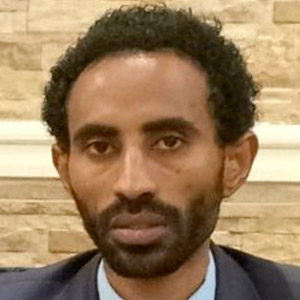
Former Minister, manager, financier, teacher, several times Managing Director of public companies.
A close associate of the late President of the Republic of Chad, Idriss Deby, and of the current Head of State of Chad.
Currently, Ali-Seid Mahamoud is the PCA (Chairman of the Board of Directors) of the Chad Shippers’ Council, a public institution responsible for collecting taxes on all imported and exported goods, including oil.
Ali-Seid Mahamoud will be defending his Executive Doctorate of Business Administration (EDBA) in March 2024, on the subject of “Facing the challenges of efficiency in public and semi-public enterprises in a southern country: Evidence from Chad”, under the supervision of Professor Yvon Pesqueux, Emeritus Professor at the CNAM Paris.
Thesis Direction
Pr Yvon Pesqueux
Thesis Title
Facing up to the challenges of efficiency in public and semi-public enterprises in a southern country: evidence from Chad
Abstract
The main objective of this study is to evaluate the relationship between the consideration of external issues and the effectiveness of public and para public enterprises (PPE) in Chad. Specifically, we analyze in one hand whether the consideration of external issues materializes in the appointments of members and the Board of Directors. In the other hand, we investigate the issues of the institutional environment on the effectiveness of PPE. Finally, we seek to understand the economic, social and environmental issues on the effectiveness of PPE.
To achieve the objectives and verify our assumptions, our methodological approach is based on qualitative analysis. The few literatures based on qualitative studies focusing on public enterprises is not the only reason for choosing this approach. As the issue of the effectiveness of PPE is little studied, a qualitative approach seems relevant to explore this subject by having an opening on the theme. The research design is a case study taking the Chadian public enterprise as a type of enterprise, in order to understand in depth the common elements to these organizations. For the selection of the sample, a criterion has been defined. The criterion concerns both the field of intervention (socio-economic) and the type of market-type production. This criterion made it possible to target three public companies that exercise in the socio-economic field and contribute to the production and marketing of commodities but also activities that, due to the small size of the private sector. These include the National Electricity Power Compagny (SNE), the Chadian Water Compagny (STE) and the National Ciment Compagny (SONACIM). The data collection tool was a questionnaire supported by a interview guide.
Based on these case studies, interviews with some decision-makers and executive bodies were conducted and highlight the following:
– The PPE studied are all in a monopoly situation. This monopoly appears to be the spontaneously “optimal” market structure, hence the term “natural monopoly”;
– External factors such as political penetration and the institutional framework negatively influence the financial, social and environmental efficiency of public enterprises. Indeed, the choice of the leaders of the deliberative and executive bodies designated are strongly correlated with membership of a political party. As a result, the leaders of deliberative and executive whose term in office is random do not allow them to build a vision of business development. For the sake of accountability to their political party and/or lobby group that favored their nominations, managers are forced to unorthodox practices that negatively affect the effectiveness of financial profitability (turnover), social (number of staff) and environmental (waste management).
– State institutions support the effectiveness of PPE. On the other hand, social institutions understood as the perception of corruption have adverse effects on the financial, social and environmental efficiency of companies.
Based on the results obtained, some recommendations are made to the public authorities on the facts of political appointments and the random duration of the member mandates of the Board as to its impacts on the effectiveness of the EPP. Also, it was a question of alerting the DGs on the external issues of institutional order, definition and implementation of economic, social and environmental objectives as to the quest for efficiency of their company.

